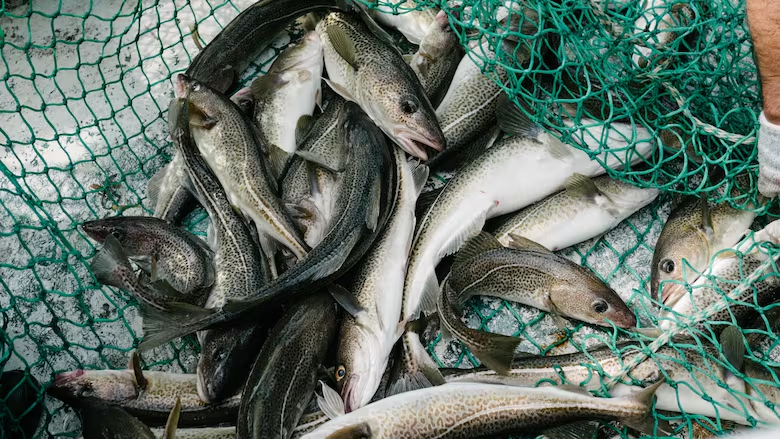Newfoundland's cod comeback faces a setback — is fishing to blame?
The stock dropped by 30% last year — and fishing quotas have been reduced

Quotas cut due to stock declines
The Department of Fisheries and Oceans announced this week that after three years of increasing harvests, this year's quota for the Northern cod fishery in Newfoundland would be cut 25 per cent in response to a drop in the cod stocks.
This suggests the much celebrated "Northern cod comeback" may be stumbling, and has researchers wondering whether even the current relatively low level of harvest is more than the stock can support.
For two decades after the collapse of the Northern cod and the 1992 fishing moratorium that devastated Newfoundland communities, the cod showed little recovery from commercial extinction. As a result, many researchers questioned whether the stock could return at all.
A setback for the cod comeback
But starting in 2012, the stock began to show signs of a slow recovery, and in 2015, Sherrylynn Rowe, a fisheries researcher at the Fisheries and Marine Institute and colleague George Rose were confident enough to publish a paper describing the "Northern Cod Comeback."

With those signs of recovery, however, came pressure to restart the commercial cod fishery, even just on a small scale. According to Rowe, this might also have been, in part, a response to declines in the shrimp and crab fishery. In any case, fishing was slowly ramped up, and last year's take was 13,000 tonnes of fish.
This was a level of take that alarmed Rowe, and she and Rose published a letter in the prominent science journal Nature warning not to ramp up the fishery too soon as it could jeopardize the recovery.
Their warning seems to have been prophetic. In 2018, DFO's stock assessment revealed that there had been a 30% drop in spawning stock of the cod to an estimated 315,000 tonnes.
DFO attributed the drop to to "natural mortality." Dr. Rowe describes this as a "grab bag" category that includes starvation due to environmental conditions, and predation by other animals. It also, however, can include bycatch and discarded fish.
Fishing the only lever we have on the stock

While the 13,000 tonnes landed last year is a small proportion of the stock, it's difficult to know how much fishing contributed to the drop. In a sense, it doesn't matter, according to Dr. Rowe, as we don't control environmental conditions. So fishing pressure is the only thing we can reduce to help the cod recover.
Dr. Rowe thinks the reduction of the quota for this year to 9500 tonnes is good news — in the sense that it's a reduction. But environmental conditions are expected to continue to be an issue for the cod for the next year or two. As a result, it's difficult to know if stocks can tolerate even that small amount of harvest.
In any case, this is clearly a setback for the northern cod "comeback."